Being a perfectionist sucks.
Unfortunately, dealing with perfectionism is a common issue in artistic and creative communities.
You know what it feels like to be deeply dissatisfied with your artwork. Not to mention you nitpick every little detail in your artwork.
And somehow, no matter how hard you try, your art is never good enough.
To combat this perfectionist pandemic that affects so many of us, I’ve decided to provide you with strategies to help you overcome perfectionism so that you can achieve greater success.
After all, doesn’t every artist want to benefit from:
- Better self-esteem and self-worth
- Stronger satisfaction for completed artwork/projects
- Greater respect for the learning process
- Improved work ethic and mindset
- Overcoming fears associated with your ego
So, are you ready to learn how to become a more successful artist?
Table of Contents
What is Perfectionism?
Perfectionism is a state of mind in which a person strives to achieve perfection in everything that they do. A person who actively pursues perfection is referred to as a perfectionist.
Many artists, myself included, often struggle with perfectionism.
But why is this the case?
It seems that many artists have very high standards for themselves, whether they be painters, illustrators, designers, photographers, or otherwise.
In addition, many artists take criticism personally because they invest to much of their time, effort, and skill into creating their art. Any negative criticism is then linked to criticism of one’s self (their ego).
Therefore, when you don’t receive the positive feedback that you desire, you may end up feeling like a failure or that you’re not worthy to be an artist.
So Check out this article is you’re interesting in learning how to take art criticism like a pro.
What Causes Perfectionism?
Perfectionism is not a phenomenon that is caused by a single factor. In fact, there are many factors that contribute to perfectionist behaviour, such as:
- Fear of failure or success
- Fear of rejection
- Fear of criticism
- Fear of the blank page (art block)
- Failure to meet high expectations
- Disappointment with your creations
- Feeling as though you’re a failed artist
- Comparison to other artists whom you perceive as more successful and talented than you
As you have probably noticed, these bullet points all share a similarity: they are rooted in negative emotion and thinking.
For this reason, dealing with perfectionism can feel like a huge task because overcoming perfectionism means overcoming strong negative stimuli.
How perfectionism develops will vary from person to person. But, often enough, it stems from internal or external pressure to succeed, fear, and low self-esteem, and comparison to other “more successful” artists.
For this reason, it’s always good to keep in mind the following quote by Tim Hiller:
Don’t compare your beginning to someone else’s middle
There’s no point comparing your journey to another person’s journey. It’s a waste of time because it often only serves to being you down. Instead, only compare yourself to who you were yesterday.
Why Perfectionism is Bad
Now, I know this title may be somewhat controversial depending on whether or not you perceive perfectionism as a problem.
So, allow me to explain the reasons for which I believe being a perfectionist is a problem rather than a desirable personality trait.
When perfectionism gets in the way of performance, it becomes a problem.
For example, let’s have a look at a few common consequences that perfectionist artists must deal with:
- You experience analysis paralysis, which leads to overthinking and getting lost in the little details of your artwork
- You are too self-critical, which damages your self-esteem and makes you feel self-conscious about your artwork
- You procrastinate because you’re waiting for the right moment, which leads to little artistic growth and creative progress
- Your artwork never feels finished, so you end up holding yourself back from learning and becoming more skilled
- You are often stressed and feel like giving up because none of your artworks look “perfect”
Now that you’ve identified some of the pitfalls of perfectionism, take a moment to evaluate yourself.
Are you a perfectionist?
If so, have you been dealing with perfectionism, or have you been letting it control you?
These are the kinds of questions we’ll be tackling next.
How to Stop Being a Perfectionist
Can perfectionism be cured?
Of course it can!
After all, you don’t want the paralysis of perfectionism to ruin your artwork, your enjoyment of art, or your art career.
And no matter whether you’re a self-taught artist or trained artist, anyone who creates art can succumb to the drawbacks of perfectionism.
But since this is a big and complex topic to tackle, I’m breaking it down into bite-sized sections for your benefit.
Let’s start with where you should begin.
Be Honest with Yourself
Dealing with perfectionism starts with asking yourself the following questions:
- Do I fear failure, rejection, etc.?
- Are my expectations unrealistic or too high?
- Do I over analyze my artwork to the point of making little progress?
- Is my internal dialogue self-deprecating? Does my negative thinking hurt my self-esteem?
- Am I scared to make art because I’m afraid to be criticized?
If you’ve answered to any of these questions, then you’re more than likely a perfectionist. Or perhaps a perfectionist to some degree.
Either way, it’s worthwhile to first identify your perfectionist tendencies so that you can more easily deal with them head-on.
Now that you’ve gained a new level of awareness, it’s time to make a commitment to change your attitudes and behaviours.
By shifting your mindset, you’re developing a new attitude that will be more conducive to learning, progress, and success.
So first, admit to yourself that you are a perfectionist (only if this is true). Second, identify the thing—such as fear or low self-esteem—that are holding you back from success.
Note: An effective way to dispel negative beliefs and thoughts is to practice positive affirmations. Daily repetition of encouraging and motivating statements will replace the negative thoughts with positive feelings.
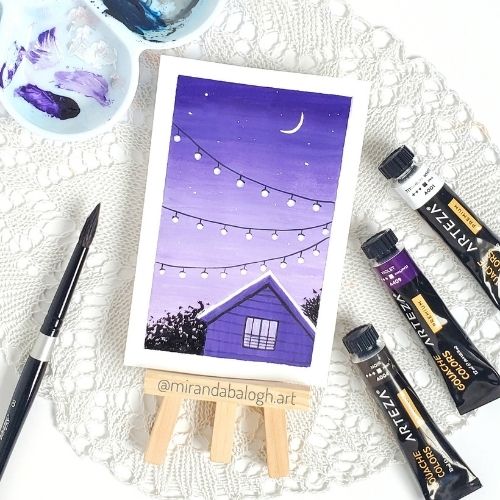
Mistakes Are Lessons to Be Learned
The fear of failure is extremely common.
As an artist, fearing to fail can inspire you to not want to make art everyday, or it can spiral you down into a creative rut.
In order to overcome the fear of failure, you need to reframe your mindset. Otherwise, you’ll never learn or make progress. And both of these things are needed in order for you to become a successful artist.
Speaking of, there’s a famous quote about perfectionism by Winston Churchill that sums up this dilemma:
Perfection is the enemy of progress
Therefore, if we want to progress and grow as creatives, we need to learn strategies for effectively dealing with perfectionism.
To do this, you should:
- Acknowledge that mistakes are inevitable on the path to learning
- Remind yourself that you are experiencing an opportunity to learn new skills and information every time you encounter a “mistake”
- Take a look at your old artwork to acknowledge how far you’ve come in your artistic and creative journey. All of that progress could not have been achieved without first failing and then learning how to succeed
If you follow these steps regularly, you’ll train your mind to not see failures in your artwork, but rather skills to work on or lessons to be learned.
When this happens, it will become easier for you to develop a stronger and more consistent work ethic because you won’t have self-doubt and fear holding you back like they did before.
Note: If you develop a consistent work routine that gives you allotted time each day to create, you’ll achieve greater progress. So, read this article to learn more about productivity for artists.
Accept Constructive Criticism
As difficult as it sounds, learning to accept constructive criticism is an important part of getting over perfectionism in art.
It’s true that not all criticism is going to be positive. In fact, sometimes criticism can be downright malicious and unsolicited.
However, you need to determine whether the criticism you’re receiving is constructive. If it is not, then don’t pay it any attention.
But if the criticism you receive is given to you with good intentions, then accept it as an opportunity to improve your techniques and skills.
In fact, listening to constructive criticism from more experienced artists and professionals can definitely give you inspiration to draw, paint, and create new artwork using that new knowledge.
This motivation can serve you well because it encourages you to keep trying and practicing your craft. By doing so, you’ll become a more skilled and talented artist.
But don’t forget that it takes practice, commitment, and hard work to achieve the success you desire.
All in all, view constructive criticism as positive feedback from individuals who are offering advice to help you learn and become a more skilled artist.
If you learn from the best, you can become the best.
So, assuming you use social media to market your artwork, read all of the public comments and private messages that you get.
You’d be surprised to see how much praise and positive criticism you can receive from strangers.
Confront Your Ego
You’ve probably heard this word before:
Ego.
But what exactly is it?
The ego is an intrinsic part of one’s mind pertaining to the self or “I”.
I’m definitely not an expert in psychology, so if you’d like to learn more about the ego, refer to this informative article by Psychology Today.
Basically, confronting your ego means addressing the part of yourself that is self-critical, self-deprecating, and which radiates low self-esteem.
When you confront your ego, you are acknowledging your thoughts and feelings. At the same time, you’re making a commitment to maintain a certain level of awareness so as to block out the negative effects of the ego whenever it appears.
Of course, it’s important to remember that the ego won’t undergo a radical transformation over night.
However, the more often you confront your ego with understanding and patience, the easier it will become to dispel the negative thoughts and emotions associated with it.
Give Yourself Permission to Not Be Perfect
This tip is really important, so pay attention.
Too often, your perfectionism hinders you from being a successful art blogger, artist, or creative because you’re pressuring yourself to achieve something that doesn’t exist.
Let me repeat that:
Perfection doesn’t exist.
Why? Because perfection is subjective; it looks different to everyone. So I like to put it this way:
One person’s definition of perfection is someone else’s definition of mediocre
Since there’s no objective perfection that exists, why are you pressuring yourself to live up to imaginary standards?
So give yourself permission to not be perfect so that you can maintain a more positive attitude and healthier mindset.
Engage in Creative Self-Care
Creative self-care is based on self-care activities or routines that nourish your soul and benefit your emotional and spiritual health.
Moreover, creative self-care can also involve any of the following:
- Painting or drawing for relaxation
- Dancing to joyful music
- Journaling in the morning or evening to declutter your mind
- Colouring or doodling to reduce stress
- Reading a book that fills you will enjoyment
- Stretching or practicing yoga
- Knitting or embroidery to keep your mind focused on a calm activity
Essentially, creative-self care is any activity that is relaxing and enjoyable. These activities keep our creative juices flowing, which can lift our spirits.
As well, it’s important to note that studies have shown that engaging in a creative activity such as art can positively benefit our mental health.
So how does creative self-care help us when dealing with perfectionism?
Well, it allows us to step away from perfectionist stresses. By doing so, we can dispel negative thoughts and emotions by engaging in a pleasant activity.
Implement any of these relaxing self-care ideas whenever you’re struggling with perfectionism as they will help you develop good coping mechanisms.
For more information on creative self-care for artists, check out this link.
Conclusion
Dealing with perfectionism is not easy.
But it is rewarding, which makes overcoming perfectionism worthwhile.
Today, you’ve learned quite a lot about reprogramming your perfectionist habits in order to develop a stronger and healthier mindset for success.
In this post, you’ve learned:
- What is perfectionism and what causes it
- Why perfectionism is a negative trait as opposed to a positive trait
- Several strategies to help your overcome perfectionism as an artist
Nevertheless, remember this:
You won’t get over perfectionism in a heartbeat.
But with consistent practice and determination, you’ll replace your negative perfectionist habits with positive traits that will be more conducive to your artistic growth and career.
When you develop more effective art habits, a stronger mindset, and a determination to succeed, you will end up becoming the successful artist that you’re meant to be.
Try it, and you’ll see!
Are you an artist or creative who has struggled to overcome perfectionism? Share your experience in the comments below!

Miranda Balogh
Artist & Online Educator

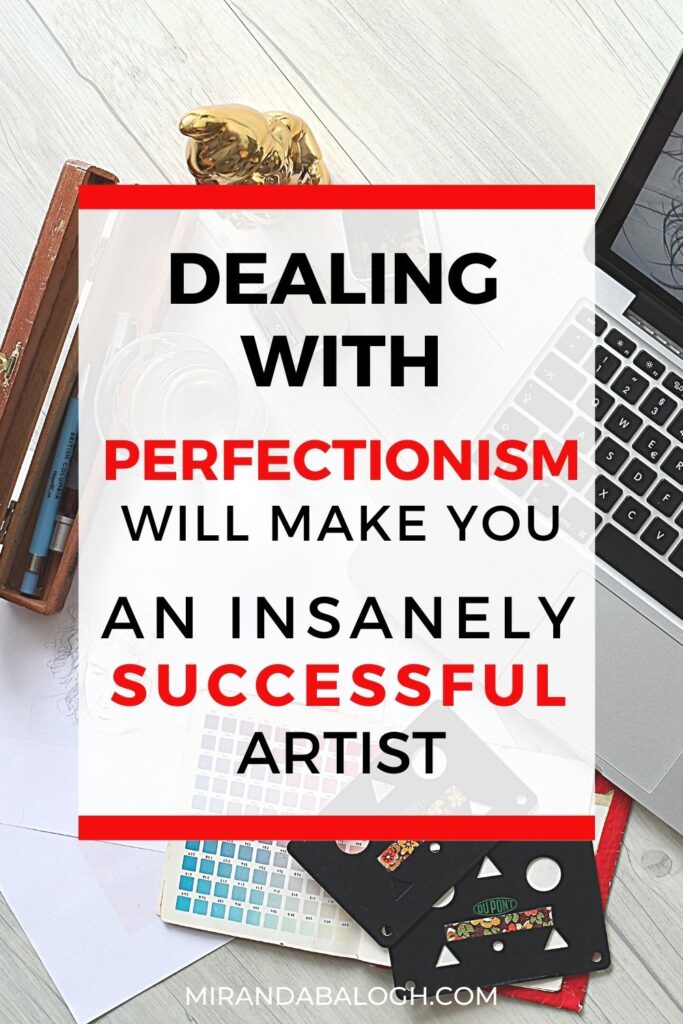
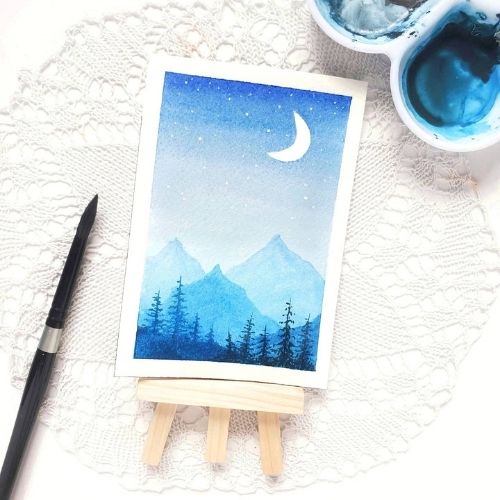

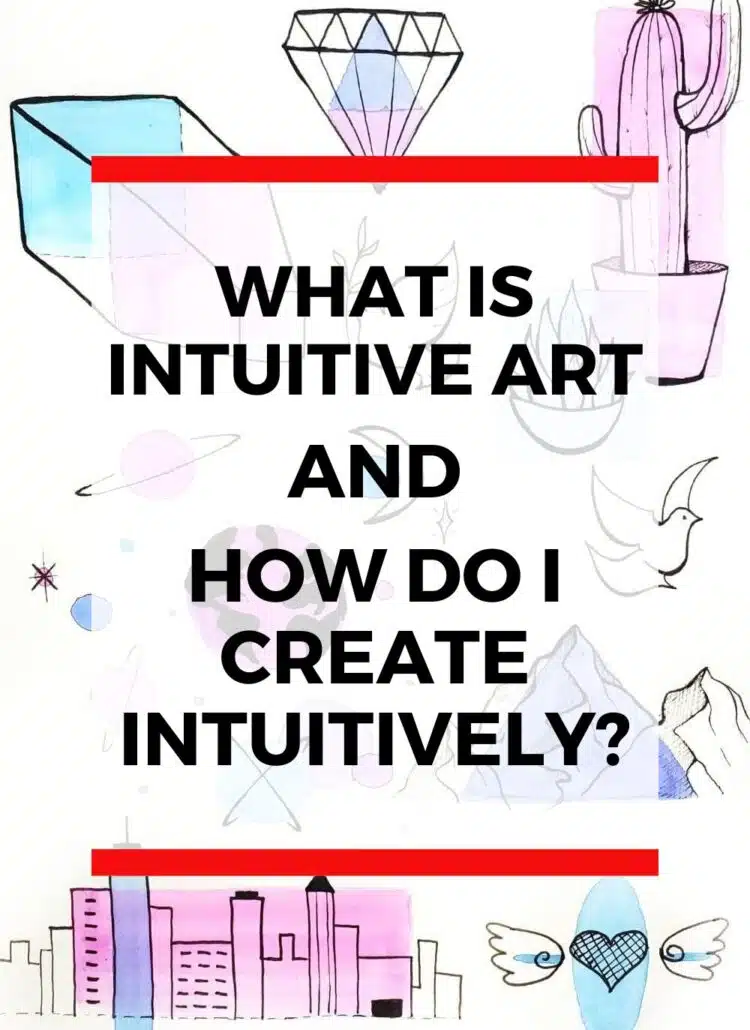
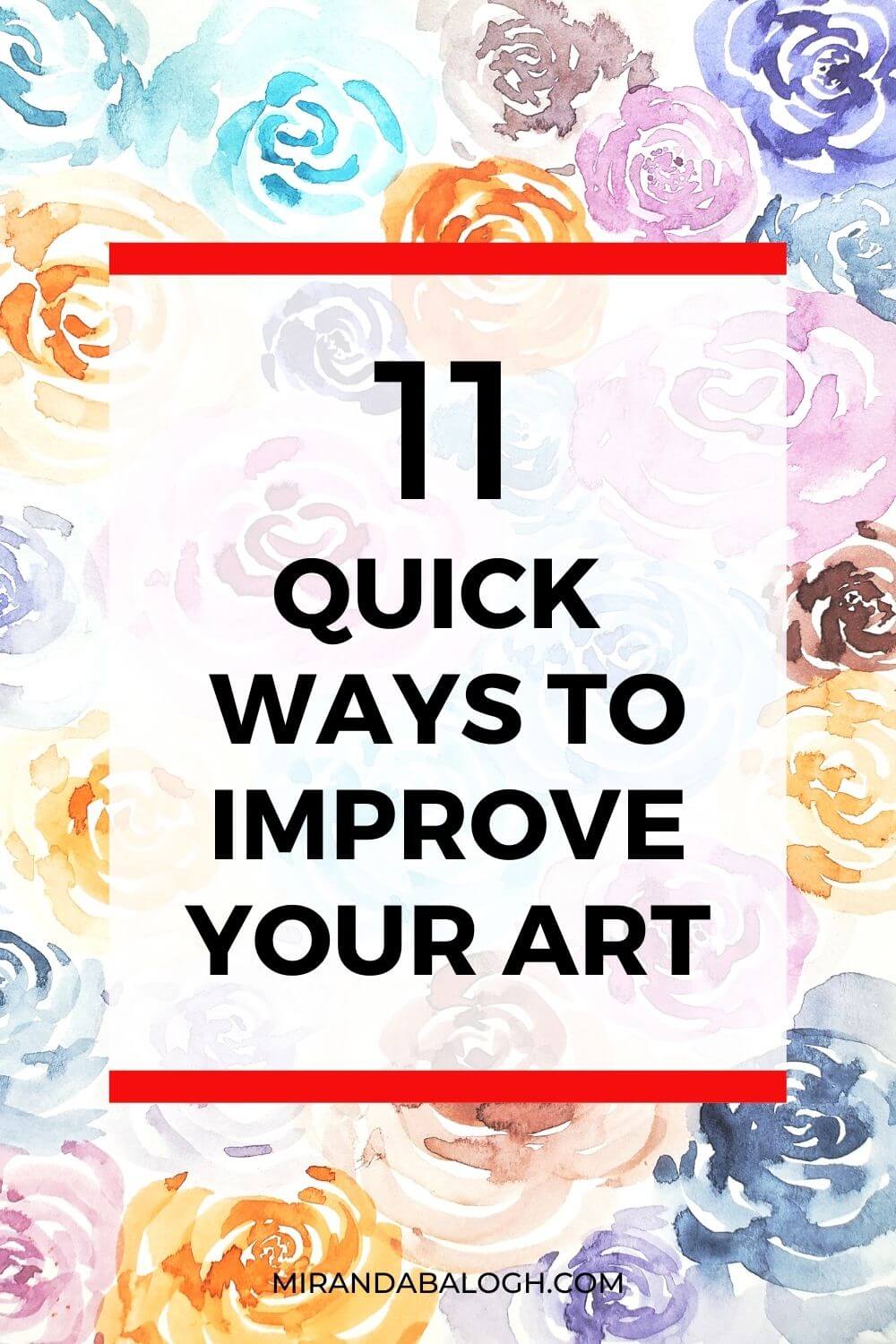

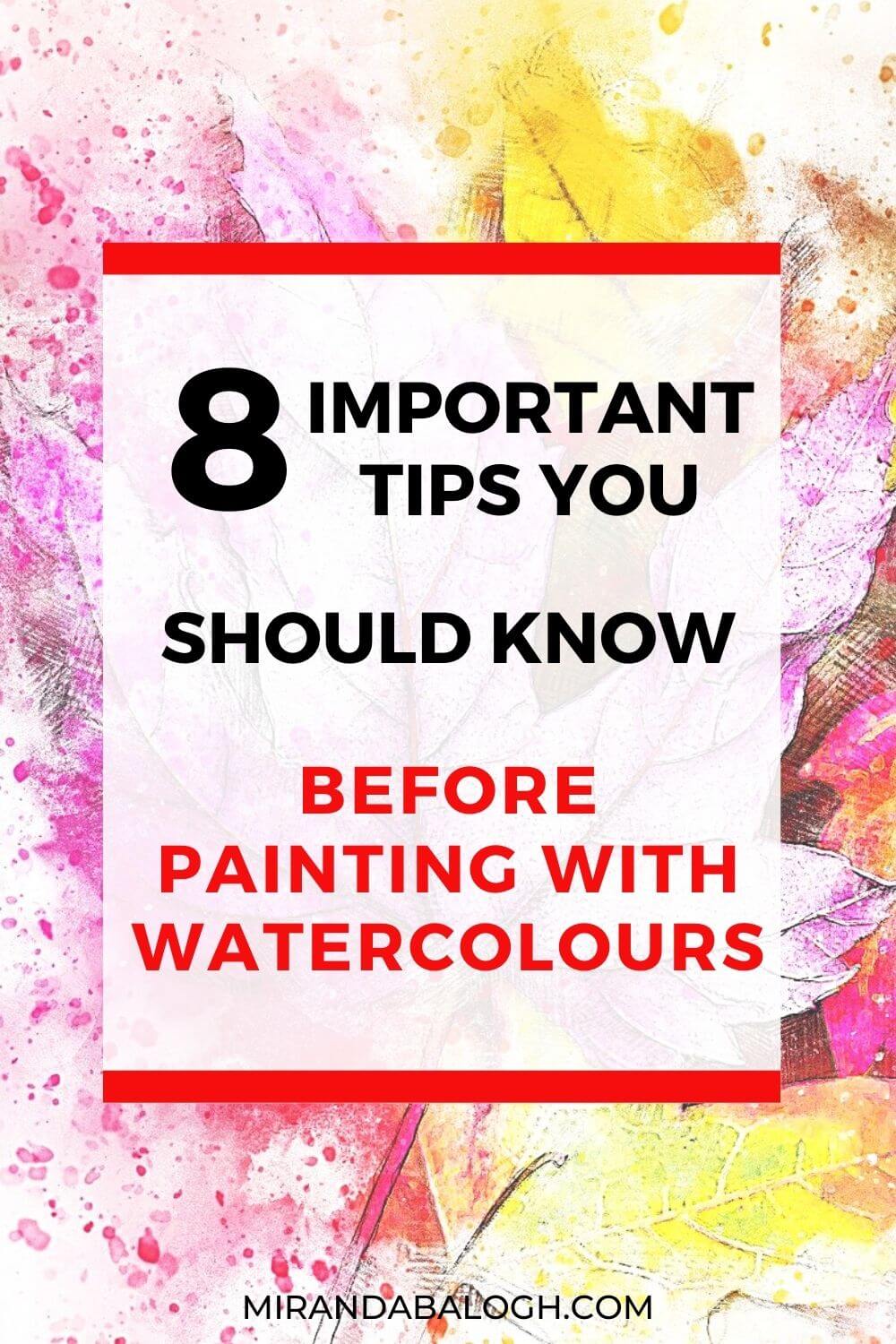
This was a really helpful post babe. Also coz I totally understand what being a perfectionist is. I have felt that espcially for the better part of this year. But yeah, dealing with is the important stuff. I am gonna hang on to this blog of yours 🙂
You’re welcome! I’m glad this post was able to give you some ideas for dealing with perfectionism. Thank you for sharing your experience!
I appreciate the in depth information about perfectionism. I have a tendency to be a overthinker and often get caught up with “analysis paralysis” which leads to procrastination. But it’s good to see you have provided great ways to overcome the negative traits of perfectionism. Thanks for sharing.
I relate to the analysis paralysis issue, too. It’s tough overcoming our perfectionist habits, but with the right mindset and strategies, it’s very doable. Thank you for sharing your thoughts!
Such a great read! 🙂
Thank you! I’m glad you enjoyed it.
I have a lot of artists in my life and yes! Perfectionism can stop you from actually putting your work out into the world (which is probably why a lot of artists do it – fear!). Thanks for sharing these insights <3
Yes, I agree! The great thing about putting your artwork out into the world is that you can get so much positive feedback and support. In this way, I think it definitely outweighs the fear of perfectionism. Thank you for sharing your thoughts!
As one that relates oh so well with dealing with perfectionism, this post is great. I love how detailed you are. I have had to learn to quit being so hard on myself and on others. As a perfectionist, you expect others to be also and that was hard for me to let go of. Bookmarking so I can come back and remind myself. Thank you for such an in-depth post. Have a blessed day~
Very relatable! Letting go of perfectionist habits is hard, but it’s worth the personal growth and positive mindset shift. Thank you for sharing your experience with overcoming perfectionism!
Not only am I a perfectionist, but I also suffer from impostor syndrome, so when I do achieve my “perfect” art, I feel like it was a fluke… 😂
Oh yeah, I’ve also felt that way about my art. In fact, Imposter Syndrome is another topic I should tackle because it affects so many people. Thanks for sharing your experience!
I think we all have that perfectionist side in one part of their lives. We always strive for personal growth and reaching the next level, its a habit hard to break. It isn’t a bad one either sometimes!
True, it all depends on the individual and how they deal with their perfectionist tendencies. Thanks for sharing your input!
I suffered from this too and it was not easy to quit.
Yes, it can be hard to let go of perfectionist habits when you’re so used to them. But all we can do is keep trying. Thank you for sharing!
Very true. Sometime back I found myself wanting to perfect things .perfect landing page.. perfect post and so on however after getting motivated from Gary Vee, now am just focused on taking action and getting things done. Tweaking bits here and there as I progress along.. Overall once you get going and start learning new things I’ve found out that progress is better than perfection.
Great read!
Agreed, Gary Vee is really motivational! And you’re definitely right about taking action and striving for progress over perfection. I had to constantly remind myself of this when I first dove into blogging. Thank you for sharing your wisdom!
I’ve definitely had some rough moments because of my perfectionism, but I’m improving every day! I’m trying to live by the premise that “good enough” is a good place to start, and you just keep moving forward from there! Thanks for the suggestions!
Living by the premise of being “good enough” is such a great personal belief. Thank you for sharing this wisdom!
Hi Miranda, I’ve always been a perfectionist looking back now. Before I think it was to get approval from my parents which then transformed into a extreme fear of failure. You listed some really good tips, some which have helped me
Fear of failure is so common in society. For that reason, I think it’s something that most of us can relate to. The first step is acknowledging the fear. From there, it becomes easier to find healthy ways to deal with that perfectionist tendency. Thank you for sharing your experience!
I love this topic. Don’t compare your behind the scenes to someone’s highlights. And if you’re aiming for perfection, it’s like waiting for a bus in an ocean. It will never come! Great article. Thank you for sharing.
Comparing our behind the scenes to someone else’s highlights is something many of us struggle with, even though we know we shouldn’t do it. And I love your bus in the ocean analogy! It really suits this topic. Thank you for sharing your input!